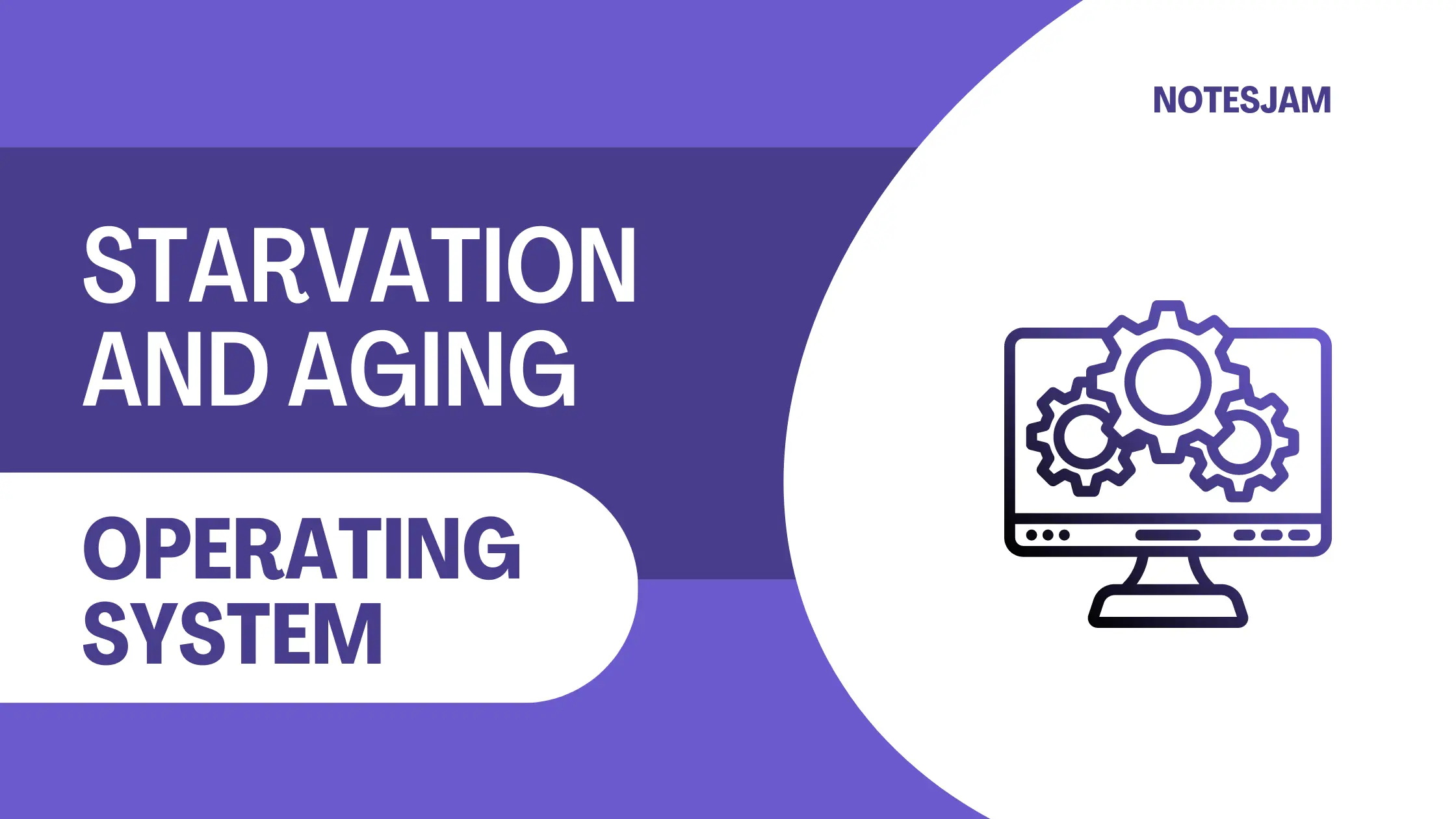Starvation and aging are two significant concepts in operating systems that affect system performance and resource allocation. Starvation refers to a situation where a process is not given enough resources to execute, while aging is a technique used to prevent starvation in a system.
Both concepts are crucial in understanding how operating systems manage resources and ensure that processes are executed efficiently. This article will discuss starvation and aging in operating systems, their causes, effects, and ways of preventing them.
What is Starvation?
In operating systems, starvation occurs when a process is not given enough resources to execute. Resources may include CPU time, memory, or input/output (I/O) devices. When a process is not allocated enough resources, it may be unable to complete its execution, leading to delays in the system. Starvation can occur due to various reasons.
Resource contention
In a system with multiple processes competing for resources, some processes may be starved due to limited availability.
Process priority
Processes with higher priority may monopolize system resources, causing lower-priority processes to starve.
Deadlock
Deadlock occurs when two or more processes are waiting for each other’s resources, leading to a deadlock situation where no process can proceed.
System overload
When the system is overloaded with too many processes, some processes may be starved due to limited resources.
Effects of Starvation
Starvation can have several effects on the system, including:
Reduced system performance
When a process is starved, it may take longer to complete its execution, leading to delays in the system.
Resource waste
If a process is starved for too long, it may be terminated by the system, leading to resource waste.
Unfair resource allocation
When a process is starved, it may lead to unfair resource allocation, where some processes are given more resources than others.
What is Aging?
Aging is a technique used in operating systems to prevent starvation. It involves increasing the priority of a process over time, ensuring that processes that have been waiting for a long time are given a higher priority.
Aging works by increasing the priority of a process after a certain amount of time has elapsed since it was last executed. This technique ensures that processes that have been waiting for a long time are given priority over processes that have been recently executed.
Aging helps to prevent starvation by ensuring that processes that have been waiting for a long time are given a chance to execute. It works by increasing the priority of a process over time, ensuring that the process is given more resources to execute.
This technique helps to prevent starvation by ensuring that no process is left waiting for too long without being executed.
Ways of Preventing Starvation
Several techniques can be used to prevent starvation in operating systems, including
Priority-based scheduling
Priority-based scheduling ensures that processes with higher priority are given more resources to execute, preventing lower-priority processes from being starved.
Aging
Aging is a technique used to prevent starvation by increasing the priority of a process over time, ensuring that processes that have been waiting for a long time are given a higher priority.
Fair share scheduling
Fair share scheduling ensures that all processes are given a fair share of system resources, preventing any process from being starved.
In conclusion, starvation and aging are crucial concepts in operating systems that affect system performance and resource allocation. Starvation occurs when a process is not given enough resources to execute, while aging is a technique used to prevent starvation by increasing the priority of a process over time.
Starvation can have several effects on the system, including reduced system performance, resource waste, and unfair resource allocation. Several techniques can be used to prevent starvation, including priority-based scheduling, aging, and fair share scheduling.
Operating systems must implement these techniques to ensure that processes are executed efficiently and resources are allocated fairly. System administrators need to understand these concepts and techniques to optimize system performance and prevent system failures.
In addition to preventing starvation, aging can also help to optimize system performance by ensuring that processes are executed on time. By increasing the priority of processes that have been waiting for a long time, aging ensures that system resources are utilized efficiently and that processes are executed in a fair and timely manner.
Conclusion
Overall, starvation and aging are important concepts in operating systems that play a critical role in system performance and resource allocation. By understanding these concepts and implementing the appropriate techniques, system administrators can optimize system performance, prevent system failures, and ensure that resources are allocated fairly.
I hope this article helps you understand Starvation and Aging in Operating Systems.







Leave a Reply